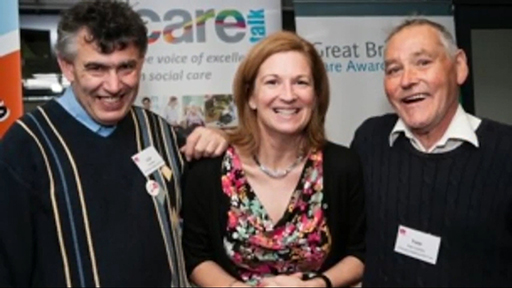4 Working with other professionals – the role of the multidisciplinary team
Patients often have multiple and sometimes complex needs that need more than one professional discipline involved in their care. In health care, professionals from a range of disciplines work together to form Multidisciplinary Teams or MDTs. NHS England have described multidisciplinary working in their 2015 report as follows.
Multidisciplinary and Multiagency working involves appropriately utilising knowledge, skills and best practice from multiple disciplines and across service provider boundaries, e.g. health, social care or voluntary and private sector providers to redefine, re scope and reframe health and social care delivery issues and reach solutions based on an improved collective understanding of complex patient need(s).
As identified in the quotation from the NHS England report, multidisciplinary working in health care has the patient at the centre of care; to assess, plan and manage care jointly and effectively. A multidisciplinary team (MDT) in health care will include several professionals from different disciplines. These may vary depending on the service or the client's needs. For example, a community MDT working with an older person who is recuperating after a hip fracture may include a GP, community nurse, occupational therapist, social worker and physiotherapist.
Activity 6 Identifying members of the multidisciplinary team
Below are some examples of patients and their needs. See if you can identify the different professionals a nurse might work with in a multidisciplinary team for each patient.
Patient 1
Martin has had a chronic mental health problem for several years. A while ago he had been an inpatient in a specialist hospital having treatment for a psychotic episode. He takes regular medication that needs reviewing every six months and is registered with his local GP. Martin now lives in a small flat and meets with his community mental health nurse as part of a care plan he has. Martin is unhappy where he is living and struggles with his money and accessing benefits. This can affect his mental health state.
Discussion
In addition to the mental health nurse, the MDT supporting Martin may include GP, psychiatrist, social worker, housing officer, occupational therapist and psychologist.
Patient 2
Nhu is 12 years old and lives with a long-term health condition that affects her mobility and breathing. She is fed through a tube and requires oxygen during the night. Her parents have made adaptations to the home and her bedroom, but as she grows, they are finding it more difficult to help her with her daily activities. Nhu has an older sister who is 15 and who helps her parents to care for Nhu. Nhu has a children's community nurse who visits the family regularly.
Discussion
In addition to the community nurse (who may be a children's specialist nurse), the MDT supporting Nhu may include paediatrician, GP, district nurse, physiotherapist, occupational therapist, social worker, housing officer and speech & language therapist.
Patient 3
Ademola is 55 and lives at home with his mum. He has a learning disability and some health problems relating to his epilepsy and asthma. He attends a work scheme three days a week, but would also like to do more activities at home and in his local community. Ademola has a community learning disability nurse who visits regularly to support him with his health needs.
Discussion
In addition to the learning disability community nurse, the MDT supporting Ademola may include GP, practice nurse, social worker, occupational therapist, psychiatrist, epilepsy specialist nurse and asthma specialist nurse. There could also be voluntary sector involvement to help Ademola access activities in the community.
Multidisciplinary working means that decisions about care have input from several professionals as well as the person in need of care. If this is a child that may be the family, but the child's views will also be sought if this is possible. Often families and carers may not actually see the different professionals within the multidisciplinary team working together, but they should notice the positive outcomes of effective MDT working. With chronic health conditions or long-term disability, the patient or their carer may work with many professionals over many years in the form of different MDTs, but the essence of each should be person-centred care.
Activity 7 A parent’s perspective of the multidisciplinary team
In Video 3, you will hear from Hayley who has a daughter who has Down Syndrome. In the video, Hayley talks about the many professionals she has encountered as her daughter grew from a baby to a child. She relates this specifically to learning about what learning disability nurses do. This is a good example of how parents, carers or the patients themselves may not fully understand the role of professionals within the team until they are directly involved in care.
As you watch the video, think about the number of professionals Hayley may have been involved with during her daughter’s early childhood.

Transcript: Video 3
a.
Communication
b.
Team working
c.
Time management
d.
Understanding the roles of others
e.
Contributing to joint decisions
f.
All of the above
The correct answer is f.
Discussion
If you thought all of these were essential to good team working you were right. These are all skills and knowledge needed to work in teams.
Nurses work in teams but are also individually accountable for their own practice. The next section looks at the work of the regulatory body for nurses in the UK.

